Why do we keep forgiving Double Fine?
April 19th marked the ten year anniversary of Double Fine's first title, Psychonauts, and it got me thinking about its last few games. Since Double Fine decided to distance itself from traditional publishing models, it's embraced crowdfunding sources like Kickstarter and Steam's Early Access. This seemed like a great idea at first; fans can get involved with a studio they love by forking over some cash and inserting themselves (if just a little bit) into the development process.
Hindsight is always 20/20 though, and the last three years have shown that programs like Kickstarter aren't quite the pro-indie dream solutions we originally thought they'd be. Broken Age arrives three years after it was originally funded, and well over-budget. Massive Chalice is still in Early Access. And Spacebase DF-9 was kicked out the door incomplete. Any other developer would have been steamrolled by questions, complaints, and refund requests after one of these blunders. What makes Double Fine so special that the studio gets a free pass after all of this?
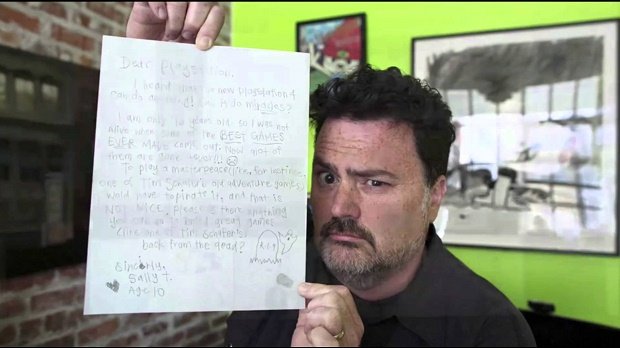
Granted, studio head Tim Schafer has built up a huge cult of personality over the years, and it's not entirely unwarranted. He was one of the lead writers and designers behind classic adventure games like the Monkey Island series, Full Throttle, Day of the Tentacle, and Grim Fandango. They're famous for their outlandish and hilarious storylines, injecting a much needed source of humor into an industry that can sometimes be a little too gritty and self-serious. Even during an era when you couldn't swing a controller without hitting a cartoon mascot, there was an originality and verve found in LucasArts adventures that couldn't be replicated.
But it's not the '90s anymore. Game development is more accessible than ever, indie gaming has flourished, and Schafer now runs his own studio, overseeing several projects at a time and dozens of employees. Yes, he's a creator (and a hugely inventive and influential one at that), but he's certainly not above criticism, no more than someone like Ken Levine, Gabe Newell, or even Peter Molyneux. As the head of the company, he's responsible for its output, for its successes and its failures. And Double Fine has a habit of over-promising on projects and then taking far too long to actually turn them around. Why does Double Fine get away with it, when we have nothing but pitchforks when Molyneux makes similar claims?
In short, it started in the big-budget, AAA space. Both Psychonauts and Brutal Legend were notorious for their development cycles, each one taking four years to release, both games dropped by their publishers before being picked up elsewhere. A narrative quickly started to form around Double Fine (and Tim Schafer, to an extent), that while everyone else wanted guaranteed money makers featuring gruff space marines, Schafer and his studio were the 'Great Indie Hope', the only ones making 'art' in a sea of 'products'. This feeling in particular came to bear during the legal spat a few years ago between Activision and Double Fine over Brutal Legend, when Activision CEO Bobby Kotick made a remark as to why the team at Vivendi had decided to drop the project: " ...I was in one meeting where the guys looked at it and said, '[Schafer]'s late, he's missed every milestone, he's overspent the budget and it doesn't seem like a good game. We're going to cancel it.'" At the time, he sounded like an evil overlord trying to keep the little guy down; Goliath blowing raspberries in David's face. But you know what? Maybe Kotick had a point.
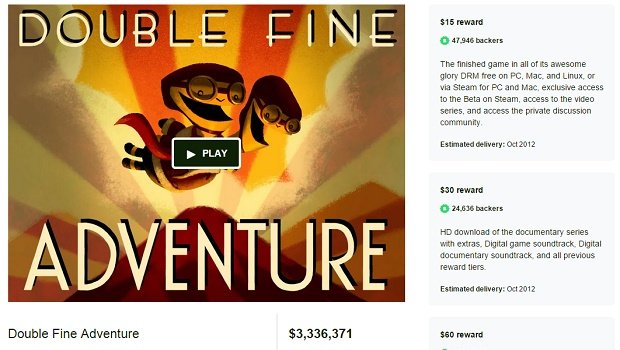
Since Brutal Legend's commercial failure, Double Fine has stuck with much smaller, less demanding projects that are quicker to turn around, releasing unique little nuggets like Stacking, Iron Brigade, and Costume Quest. The decision is admirable, especially considering Double Fine's habit of going over-schedule and over-budget. But as it's sought out smaller, more sustainable projects, it's also turned to crowd-based funding options like Kickstarter and Steam Early Access. Here, Double Fine seems to have found a solution to its funding woes. How can the studio continue to create all those quirky indie gems everyone loves? Easy: let the fans pay for their development directly. It sounds like a fantastic idea, but this is where things seem to have gone off the rails.
Programs like Kickstarter have been put in place so independent creators with a good idea and no funding can have an honest shot. When Double Fine used Kickstarter to launch its adventure game experiment, it was seen as a great way to not only democratize the game's funding, but to document the entire development process outside of any publisher oversight or PR spin. Originally, Double Fine Adventure was created as a way to make a little adventure game, and to film its creation from inception to publication. Fans saw this as an opportunity to let Schafer finally get a chance to make the adventure game he's always wanted, free from publisher constraints. Double Fine originally asked for $400,000. They got $3.3 million. The project scaled exponentially.
Sign up to the GamesRadar+ Newsletter
Weekly digests, tales from the communities you love, and more
This was no longer some simple adventure game made to document the game development process. This was going to be Tim Schafer's magnum opus. A change of that magnitude doesn't come for free, and what would eventually become Broken Age took three years to make and required raising far more money than its initial $3 million dollar investment. This meant releasing an unfinished Broken Age on Steam for full price, letting players buy the first half in order to fund development of the second, and forcing fans to wait over a year for the final product. Even at the time, it felt strange to ask for more money, but we let it slide. We didn't want Broken Age to be good - we wanted it to be great.
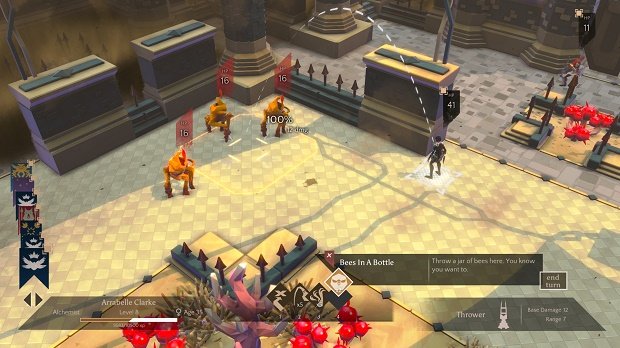
If it were just Broken Age, that'd be one thing. But it's not. A year after the DFA Kickstarter successfully closed, Double Fine ran another crowdfunding campaign for Massive Chalice, a strategy RPG combining bits of Final Fantasy Tactics and Game of Thrones. Fans and onlookers were understandably confused. Why is Double Fine asking for money for a different project when the one they started a year ago isn't even finished? Again, it was weird, but we let it slide. Double Fine wants to make another game, and needs more money. Sure, here, have some more. As of the publication of this editorial, Massive Chalice is nearing completion but is still in Steam's Early Access program.
Lately, Double Fine has been using Early Access as a platform to fund development of its games without publisher support - another admirable goal, but one that comes with its own set of risks. You're requiring consumers to trust that you are using the money they pay responsibly; otherwise, that trust is broken, and whatever goodwill you've earned from the quality of your alpha or your overall reputation as a developer can be shattered. Sometimes, as in the case of Hack 'n' Slash, it's worked out for the studio. When this computer programming-inspired puzzler released in Early Access in May, it was practically content complete, and it only took four months for the team to fine tune its puzzles, add in the final dungeon, and integrate Steam Workshop support.
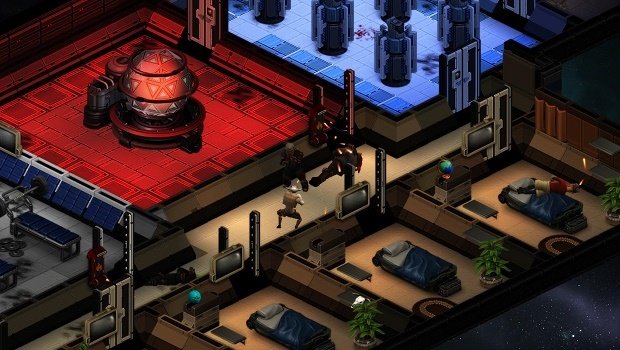
But in the case of Spacebase DF-9, it's been a massive trainwreck. The game was originally pitched as a more accessible sci-fi take on Dwarf Fortress, that was meant to develop and grow over the course of a few years as it remained in Early Access. Just a year after its initial alpha release, Spacebase was hurriedly patched up and given just enough features to justify slapping on a 1.0 version number and shoving it out of the door along with its source code, leaving it to the fans to mod and update as they see fit. Many who bought into the promise of Spacebase DF-9 were understandably outraged. But not like they were for Molyneux's Godus.
If any other developer continuously delayed games and pulled off stunts like this, there would be blood. I know this, because I saw this very thing happen with Peter Molyneux over the course of several years. After successfully Kickstarting Godus, that game went through a series of delays and changes in scope, to the point where backers are still waiting on the PC version, with stretch goals like its Linux port likely disappearing entirely. And all of this is on top of Molyneux's announcement that he's pulling devs off Godus, and putting them on a new project. Some in the press were a bit harsh, but all were understandably miffed - Molyneux and his studio promised a game and haven't delivered on it, and now want to make something else instead. That's… not really how this is supposed to work.
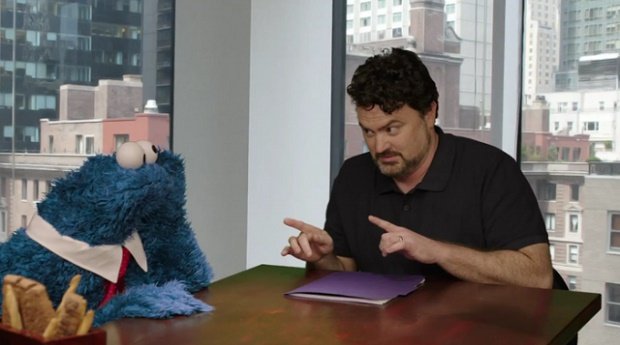
But in Schafer's case, we've built up a narrative that he and his studio is the 'Great Indie Hope', sent to fight the suits at every turn. He's made a career on delivering memorable stories above all, and that's usually meant finishing them far after initially promised, over-budget, and full of bugs. But when we combine our memories of past games like Monkey Island, his 'fuck you' attitude to people like Bobby Kotick, and his desire to strike it out alone against a sea of samey sequels and military shooters, we project our own desire to want something more from the games we play onto him. He's the perpetual underdog. And he's likable. He's funny, and charming, and can solve a Rubik's cube in seconds. How can you not like someone like that? So we forgive. We let release dates slide. We shrug when Schafer asks for more money. Of course we do; we want the final product to be as good as it can be, because we have it in our heads that when he succeeds, we succeed.
Here's the thing, and it's something that took me a long time to come to terms with: Tim Schafer is human, just like you or me. He's capable of making mistakes. Just because he's developed memorable games doesn't mean that he's above reproach, that he's incapable of making questionable decisions. And that 'Great Indie Hope' feeling I mentioned earlier? We are living in a golden age of indie gaming. Axiom Verge was made by one guy over the course of five years. Super Meat Boy by a team of two. Thomas Was Alone is an incredible, engaging tale told with nothing but blocks. There are so many unique, interesting voices continuing to 'stick it to the man' with their independent titles that we no longer have to ascribe that status to any one person any more. So enough with the cult of personality; we need to be more critical over how creators spend our money, and hold them accountable when they miss deadlines and go over-budget. Even if that creator is Tim Schafer.
Editor's Note: Changes were made to clarify that Broken Age was not released on Steam in Early Access, but rather that consumers can purchase Act 1 and receive Act 2 at a later date as a free update.



